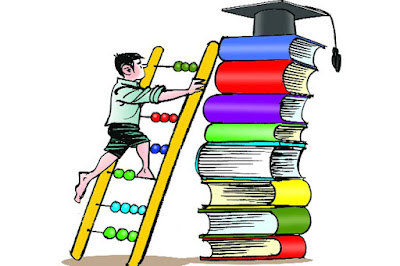The Problem of Measuring 'Education'

One of the foundational industrial age belief is 'what gets measured, gets done'. This is indeed at the heart of scientific management and all the business models that we so love. The progresses in Information Technology came out of, primarily, our quest for measurements, so much so that we got used to the shorthand - 'Information Age' - when measuring and decision-making based on such measurements are the key organising principle of the whole society. Therefore, it is not surprising that the conversations in Education also revolves around measurement. Much of educational research is about what can be measured and how, driven primarily, but not exclusively, by the politics of public funding, to establish the 'worth' of one thing or another to be eligible for taxpayers' money. The private sector engagement in Education, either through large scale philanthropic engagements by people like Bill Gates or Mark Zuckerberg, or in the commercial ventures back





